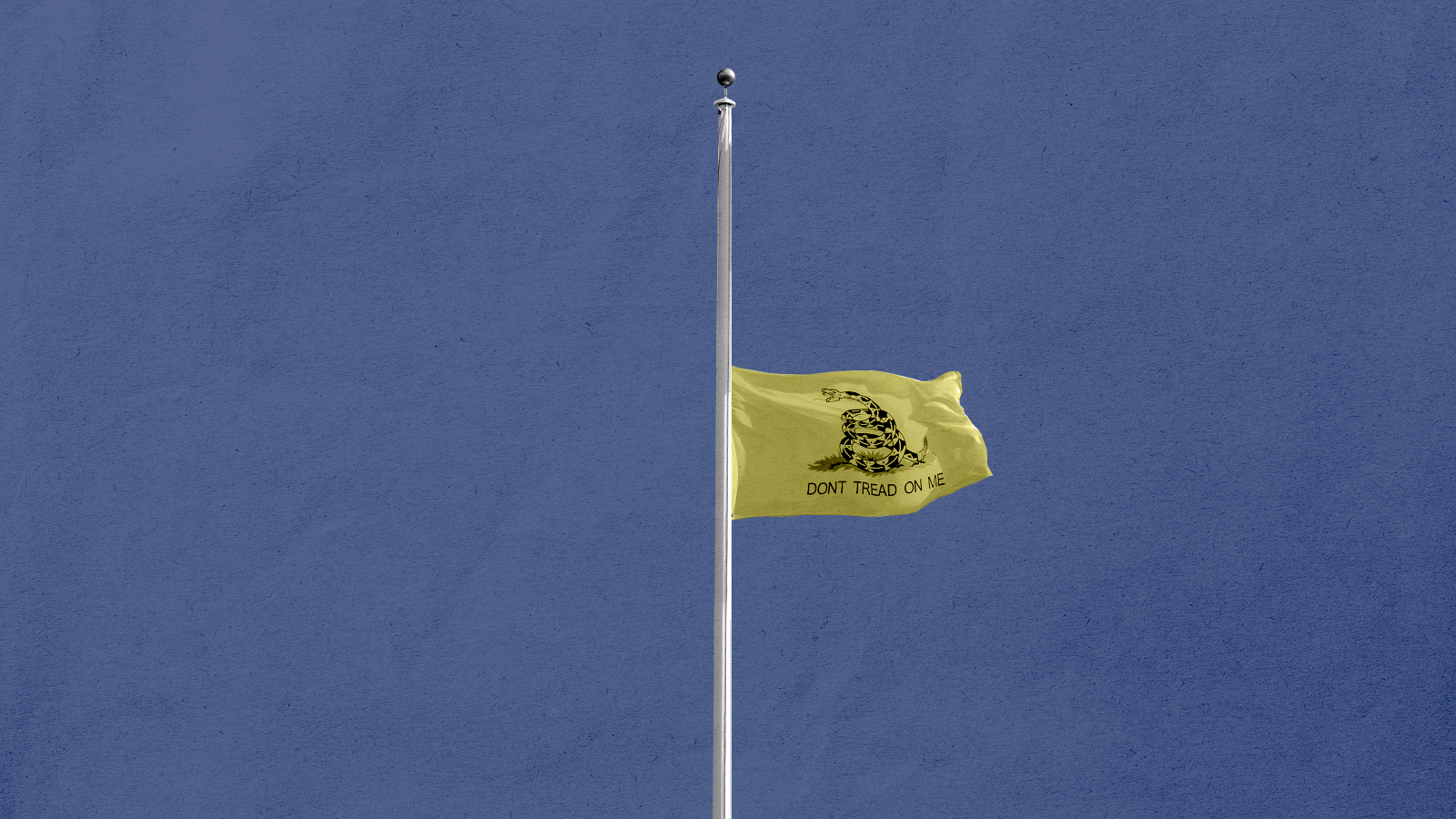The political struggle over the libertarian soul takes a grim and telling turn

Illustrated | iStock
DAMON LINKER
JANUARY 26, 2022
Libertarians often aspire to rise above partisanship. They care about liberty, and Republicans and Democrats alike have mixed records on defending individual freedom. But remaining above the political fray has grown more challenging in our era of hyperpolarization, with some libertarians falling in behind former President Donald Trump's Republican Party, others championing an anti-Trump position, and dwindling numbers continuing to resist choosing sides.
If the reporting in Adam Wren's lengthy exposé in Indianapolis Monthly is trustworthy, this political struggle over the libertarian soul has been fought especially hard — and with especially tragic consequences — at Liberty Fund, a 62-year-old educational institute located in the Indianapolis suburbs. Wren's piece tells the story of how one Liberty Fund employee raised concerns internally about "mission drift, deficient management practices, and potential tax negligence," requested whistleblower protections, was terminated from his position last year, and, shortly thereafter, killed himself.
Liberty Fund may seem an unlikely venue for this story, the sort of libertarian institution that would remain steadfastly nonpartisan, if any could. To the common libertarian aspiration to transcend partisanship, the organization added its founder's distinctive emphasis on Great Books learning. Businessman Pierre Goodrich didn't understand himself to be creating a think tank like the Washington D.C.-based CATO Institute that would directly influence policymaking. He believed in fostering conversation among intelligent people from a range of backgrounds about the foundations and maintenance of a free society.
For decades, he succeeded. I've attended around a dozen Liberty Fund conferences over the past 23 years, and I've even organized one myself (on Thomas Paine). These events have always included a range of people (professors, journalists, business people) from across the ideological spectrum (libertarian, conservative, liberal, even a socialist or two) for a few days of discussion and debate of classic texts — from Plato and Shaftsbury to Raymond Aron and Milton Friedman.
Liberty Fund employee Nico Maloberti, the subject of the Wren report, alleged that this high-minded (and very slow-paced) approach to increasing the understanding of and appreciation for liberty had been yielding in recent years to a more overtly political stance. That was especially so, he thought, at the institute's more journalistic website, Law and Liberty, which was launched in 2012 and eventually began running pieces boosting Trump, conservative politicians and writers, and Hungarian autocrat Viktor Orban, while lambasting their critics. After a couple of years of objecting within the organization to this political turn, Maloberti was unceremoniously let go over the phone, while stuck in traffic. He took his own life a month later.
He wasn't the first employee of the organization to raise alarms about institutional drift, then find himself laid off in what the organization's board of directors calls a "restructuring." Since Maloberti's death, moreover, at least one prominent associate of the institute has publicly severed ties with Liberty Fund, alleging its current leadership is responsible for a "strategic and ethical catastrophe."
However one describes it, the shift could well be driven as much by the corporate imperative to demonstrate influence as by naked political passion and ambition. The businessmen who sit on Liberty Fund's board may be committed Republicans, but they may also have grown impatient with the absence of metrics to show their expensive conferences are making a concrete difference in the world.
In this respect, the story of Liberty Fund's drift away from its founder's vision may be one as much about overt politicization as it is about declining faith in the power of libertarian ideas to win the day through erudite conversation alone. And, far beyond this one organization in Indiana, that's a loss — or, at least, a sign of a larger, deleterious shift — for our country, where once we tried to aspire toward something more reasonable.
No comments:
Post a Comment